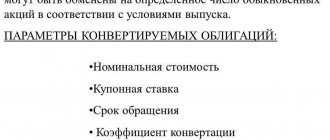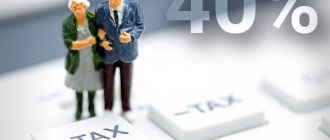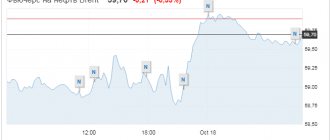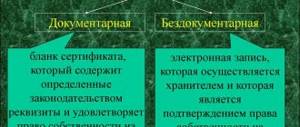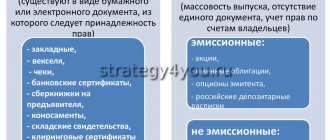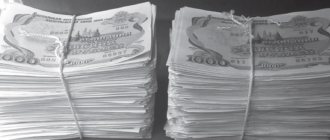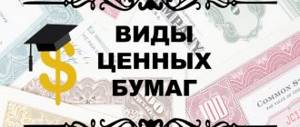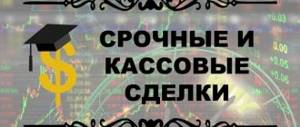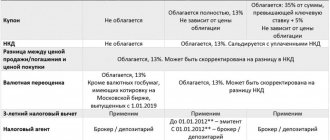The topic of paying taxes is always relevant. In this article we will look at what taxes a private investor faces on the stock exchange, how to pay the tax rate, and whether it is possible to reduce the amount. Let's look at the nuances of paying taxes on shares of Russian and foreign companies (using the example of the US market). And we’ll even look at 5 life hacks on how to save on taxes on the stock exchange. This topic requires familiarization before you ask yourself, how to invest on the stock exchange.
Before proceeding to the main topic, it is necessary to define who a resident is - an individual who spends more than 183 days a year in the Russian Federation over the last 12 months. Residents pay personal income tax - 13% and non-residents - 30% for almost all investment instruments. Remember this if you are from Kazakhstan, Ukraine, Belarus, and intend to invest in the Russian market.
Features of taxation in the field of investment
Let's start with the Moscow Exchange, there are three sections in which individuals and the market take part:
- stock;
- urgent;
- currency.
In the first two markets, your tax agent is a broker. The participant will not need to contact the tax office. In foreign exchange, each participant is independently responsible for paying the tax rate; the broker does not write off anything. The most conservative instrument on the stock market is OFZ. According to them, the investor receives two types of income:
- coupon - a set percentage, stably paid to the investor;
- profit from changes in the value of a security.
Regarding the first type of earnings, OFZ coupons, it is not taxed. The second type of profit will be subject to a tax rate. For example: a participant bought OFZ on the market cheaper, but sold it at a higher price, the investor receives income. If securities were purchased below par and held until the maturity date, the situation is identical. The same principle applies to municipal ones, and from 2018 to corporate ones. But for corporates a number of conditions are prescribed:
- only for ruble bonds;
- bonds issued after 2021;
- if the coupon yield does not exceed the Central Bank rate +5%, at the moment the Central Bank rate is +7%. If you find an asset with a yield higher than 12.5%, tax will be written off from this coupon income; if it is lower, then no.
Taxation of residential real estate
Buying an apartment and then selling it at a higher price or renting it out is a fairly common way of investing. Income of individuals received from transactions of purchase and sale of residential real estate is taxed at a rate of 13% (for non-residents 30%). You can reduce the amount of income either by 1 million rubles (tax deduction) or by the amount of documented expenses spent on the purchase of real estate.
The tax base for the sale of real estate purchased before 01/01/2016 is calculated using one of the following methods:
- Sales amount minus tax deduction 1 million rubles
- Sales amount minus documented expenses for the acquisition of real estate
When calculating the tax base for the sale of real estate acquired after 01/01/2016, the cadastral value of the property as of January 1 of the year in which the sale took place is taken into account. If the sale price of the property is more than 70% of the cadastral value, then the NOB is calculated as in the example above. If the sale price of the property is below 70% of the cadastral value, then the base is calculated in one of the following ways:
- 70% of the cadastral value minus tax deduction of 1 million rubles
- 70% of the cadastral value minus documented expenses for the acquisition of real estate
In some cases, income from the sale of real estate is exempt from taxation. To do this, the property must be owned for at least three years if:
- the property was purchased before 01/01/2016
- received by inheritance from close relatives, as a result of privatization, received under a life annuity agreement.
If the property was purchased after 01/01/2016, then the income received from the sale is exempt from tax if the property has been owned for more than 5 years.
Another type of tax that property owners pay is property tax. It is calculated from the cadastral value of the property and is paid annually. In some regions, the tax is currently calculated based on the inventory value of the property, but over the next few years all regions will switch to the cadastral value.
The property tax rate for residential properties is 0.1%, but local authorities can reduce it to 0% or increase it to 0.3% at their discretion. At the same time, tax deductions are provided for residential real estate in the amount of cadastral value of 20 square meters. m for an apartment, 10 sq. m - for a room, 50 sq. m - for a residential building.
Another tax will have to be paid if an individual rents out an apartment - 13% must be paid on the income received.
Why is real estate a bad investment?
Tax liabilities on shares
Investments on the stock exchange are related to shares. There are also two sources of income:
- from sale;
- from dividends.
Let's consider the profit from the sale; all traders set the goal of buying a share cheaper and selling it more expensive, making money on the difference. If a market participant earned more from a price change than he lost, then a tax rate of 13% must be paid on the net profit; profitable and unprofitable transactions are balanced. Example: we bought Pepsi shares for 100 rubles, sold them for 80 rubles, with a loss of 20 rubles. Then we bought Sprite papers for 100 rubles, sold them for 150 rubles, and made a profit of 50 rubles. 50 – 20 = 30 rubles, it is from this amount that you need to subtract the broker’s commission and you get 20 rubles, the company charges a 13% tax on these funds.
Now regarding the second tax:
- residents 13%;
- non-residents 15%.
It is important to understand that after receiving dividends, they are transferred to the depository. Afterwards, the depository removes the tax and dividends arrive to the broker, cleared of tax, and are credited to the client’s account.
Tax on currency transactions
The tax rate on transactions with foreign currency is 13%. At the same time, the broker is not a tax agent for this type of transaction, so personal income tax must be paid independently.
The amount of income from the sale of currency can be reduced by the amount of expenses incurred, or by the amount of property tax deduction of 250,000 rubles per year. The taxpayer can choose at his own discretion how it is more profitable for him to reduce his income.
(Amount of income - amount of expenses or amount of deduction) * 13% = amount of personal income tax payable.
It is more profitable to apply the deduction if the sales amounts are small and do not exceed 250,000 rubles. If the sales amount is large, then it is more profitable to use the amount of expenses.
You will not have to pay tax only if you have owned the currency for more than three years.
Features of tax obligations
Please note that the tax is not charged on paper profits, but on those that were received from closing the transaction. If a client holds a security, and income is displayed in the trading terminal or personal account, but it is not recorded, the transaction is open - this profit is not paper, therefore it is not taxed.
When is the tax removed? There are three options:
- at the moment when the investor withdraws money;
- when closing an account;
- At the end of the year, the broker sums up the investor’s results and the payment is made.
How much personal income tax is withheld when withdrawing funds?
In accordance with the Tax Code of the Russian Federation, personal income tax when withdrawing funds is withheld as follows:
- if the amount of withdrawal of funds is greater than the personal income tax calculated on an accrual basis from the beginning of the current year, then upon withdrawal the entire amount of the calculated tax at the time of withdrawal is withheld
- if the withdrawal amount is less than or equal to the personal income tax calculated on an accrual basis from the beginning of the year, then upon withdrawal the tax is withheld from the withdrawal amount (withdrawal amount * 13%)
What else do you need to know?
Now let's look at a few points that a trader needs to know about when working in this direction. The Moscow Exchange presents different sections, and in most cases, profit/loss on different sections is not summed up.
For example, a participant will receive a profit on shares on the stock market, but received losses on a futures currency pair - these are two different columns in his personal account. At the end of the year, the brokerage company summarizes the results for two different bases. This is not beneficial for the investor. There are exceptions:
- shares on the stock and term markets.
Remember that all payments to the tax office are made in rubles. There is a risk of an unpleasant moment occurring. For example: if you bought a paper in foreign currency, it turns out that the purchase price is recalculated at the Central Bank exchange rate into rubles and the sale price is identically recalculated. Situation: we purchased euro bonds in dollars, the asset lost value during its holding, and the investor suffered losses. It seems that there is no need to pay taxes, but the dollar exchange rate has increased during this time, as a result, the value of the bond in rubles has increased, and accordingly, a personal income tax liability appears.
Results
If you are still wondering whether you need to pay tax when selling shares, I advise you to stop doubting. Paying personal income tax is a guarantee of a quiet life and hassle-free trading or investing.
In most cases, brokers will do this for you. But I would recommend understanding at least in general terms the procedure for paying taxes, as well as knowing how their amount is calculated and other nuances. No one is insured against force majeure; knowing the procedure, you can pay personal income tax yourself.
If you come across any nuances that are not covered above, be sure to write about it in the comments . your situation together
There will be another article devoted to taxation, so subscribe to blog updates. This way, you will be among the first to know about the release of new useful articles on my blog and become the most financially literate in your circle. With this, I say goodbye to you and wish you not only success in investing, but also no problems with the tax authorities .
If you find an error in the text, please select a piece of text and press Ctrl+Enter. Thanks for helping my blog get better!
Tax liabilities on foreign shares
Required to pay the tax rate in the country:
- issuer;
- RF.
Russia has an agreement on the avoidance of double taxation with many countries. Let's look at the example of the USA. In America, income from the sale of shares is not taxed. But, you have to pay 13% in the Russian Federation. The investor submits a declaration and pays all necessary interest on his own. The tax is paid only in the Russian Federation, regardless of whether you trade US securities through a Russian broker or a foreign one.
Is there a tax on shares on dividends? If Form W-8 BEN is not signed, a 30% fee will apply. Once the form is signed, the rate drops to 10%. The speculator works on the US market through a Russian broker; you need to see for yourself whether this form is filled out. The following algorithm turns out if this form is available: in the USA we pay 10%, and in the Russian Federation we had to pay 13%, but since the agreement is in force, the balance is paid in Russia. This situation is not in all cases.
If you own Ferrari securities in Italy, in this country they will write off 23%, but in Russia you will not need to pay anything. Since 13% has already been outbid.
Payment procedure and tax period
A private investor is not obliged to calculate the amount of tax and pay it to the Federal Tax Service on his own. The tax agent does this for him.
The tax agent can be a brokerage or management company, which itself carries out the calculations and transfers part of its client’s profit to the budget.
If the tax agent is a foreign company, the investor is required to independently pay the tax fee by filing a declaration in Form 3-NDFL.
In Russia, the tax period is considered to be a calendar year. Tax for the entire previous year is withheld automatically in January of the following year.
If an investor sells securities during the year, then the tax is paid when funds are withdrawn from the brokerage account. In this case, the withheld taxes will be taken into account in the final calculations for the year.
There must be sufficient funds in the investor's account at the time of tax withholding. Otherwise, the broker or other tax agent reports this to the Federal Tax Service, and the obligation to pay the tax falls on the shoulders of the investor.
How to pay less from income on the stock exchange (legally)
- When working on long-term investing, do not take profits on growing stocks. You can hold an instrument for 20 years, avoid taxation on profits, receive dividends, and pay only for them.
- You should not take profits in December unless absolutely necessary. Having done this, the rate is calculated in January and written off. Wait and take profits in January.
- If you closed the year with a loss, it can be carried forward to future periods and recalculated, subtracting it from profit. It is important to remember to file your tax return.
- In certain situations, depending on the situation, it makes sense to record a loss in order to deduct it from income and thereby reduce taxation.
- Remember about the tax benefits that are available to individuals on the Moscow Exchange. Benefit for long-term holding of bonds, hold for more than 3 years, then automatically exempt from tax. Please note that there are restrictions on amounts. The second benefit is an individual investment account.
It should be recalled that income from investments in impersonal metal accounts, investment coins, and mutual funds are subject to a personal income tax of 13% for residents. The financial intermediary makes payments for investors. When it comes to buying gold bullion, 20% VAT is paid when purchasing, and 13% personal income tax when selling. Take this point into account, since such interest rates can significantly affect the final profit from buying gold.
The information provided about investing on the stock exchange for beginners rarely contains detailed information regarding taxation. Be sure to read the question in more detail yourself, the final result depends on it.
Features and nuances of taxation of securities in the Russian Federation
Before moving on to the intricacies, I would like to go over the basic concepts and elements in the topic of taxation.
Tax rate
On the territory of Russia, the tax rate is 13% if the investor is a resident of the Russian Federation, that is, he is in Russia for more than 183 days a year.
For non-resident investors – 30%. The lucky person who received securities as a gift also pays 13% (only if he is not a close relative). But the heirs do not have to pay anything.
Taxable period
This is a period of time at the end of which the tax base and the amount of payment to the Federal Tax Service are established. In our country this is a calendar year. In January, funds are automatically withheld. On profits received during the year, but successfully withdrawn to the account, tax is paid upon transfer of funds. At the end of the period, these amounts are not taken into account when calculating the debt to the Federal Tax Service.
Who performs the functions of a tax agent?
A tax agent is a person who is required to calculate, withhold and transfer taxes to the state.
If the broker or management company is from Russia, these functions are assigned to them. An investor only monitors the process of paying funds to the treasury if he is worried about his money.
If the broker is foreign, the investor will have to pay taxes himself. For the Federal Tax Service, declaration form 3-NDFL is filled out and submitted.
The tax base
The tax base is the amount from which the obligatory payment is withheld. To do this, all confirmed costs associated with the purchase of securities are deducted from the profit: various commissions, expenses for drawing up documents.
All calculations are made in rubles. The value of securities purchased or sold in foreign currencies will be translated at the exchange rate prevailing on the day of purchase.
Taxes on mutual funds
Since a mutual fund is not a legal entity, tax is not withheld from its profits. But a resident shareholder will have to pay 13% on income when redeeming shares, and a non-resident of the Russian Federation will have to pay 30%. You can hold shares and not repay them for a long time - in this case there is nothing to tax.
The management company will calculate, retain and transfer funds to the budget when the shareholder decides to redeem the shares. When selling shares on the secondary market, the conditions will be as follows:
- when selling via an exchange, the broker is required to withhold tax;
- without an exchange - a declaration is submitted.
Now I’ll tell you about the benefits. If the shares have been held for more than 3 years, and the mutual fund is open, then up to 9 million rubles can be exempted from paying personal income tax. And then every year another 3 million is added to this amount. That is, if you own shares for 4 years, income in the amount of 12 million is exempt, and so on in increasing order.
Also, no tax is paid when exchanging shares of one mutual fund for another, which is owned by the same management company. The tax period does not depend on the date of exchange.
Taxes on options and futures
There are 2 methods to calculate the tax base, which depend on the purpose of the transaction. It was speculation or hedging (protection against risks). Since in reality it is difficult to distinguish between such transactions, brokers establish balanced and non-balanced tax bases.
Unbalanced instruments – income from one transaction cannot be reduced by a loss on another. Balanced instruments allow you to partially reduce profits, that is, to carry out mutual settlements.
Trust Taxes
By concluding a trust management agreement, the investor transfers assets to the manager for disposal, but remains their owner. The manager carries out transactions with the investor's assets and receives income for him. Trust management is regulated by the Civil Code of the Russian Federation.
Examples of assets:
- securities;
- money;
- real estate.
Agent – manager or founder of management.
The base is determined every month. The results of financial activities for each type of securities are cumulatively added up. All direct expenses are deducted from profit.
Taxation of transactions through IIS
IIS is similar in essence to a brokerage one, but has a big advantage over it - 2 types of preferential taxation to choose from.
Type A makes it possible to return 13% on funds from an individual investment account. Maximum per year – 52 thousand. To receive a deduction, you need a declaration and an IIS agreement.
Type B - the investor does not pay tax on profits received through an individual investment account. Only tax is paid on dividends.
Taxation of foreign securities in St. Petersburg
The tax base on the St. Petersburg Exchange is calculated in rubles, although trading can take place in other currencies. It may happen that there is a loss in foreign currency, but you still have to pay the Federal Tax Service.
Let me look at the situation using an example. I bought a Facebook share for $250 at the exchange rate of 63 rubles. The stock fell in value. I was saddened and hastily sold it for 240 dollars, but at the exchange rate of 68 rubles. In dollars there is a loss of $10. And in rubles, due to the jump in the exchange rate, there is a profit of 300 rubles. Tax will be withheld from them. But I wouldn’t have to pay personal income tax if a loss was incurred in rubles.
There is a benefit that makes it possible to exempt the money received from the sale from personal income tax. To do this, the holding period for securities must be more than 3 years.
Dividends received on US securities will be subject to a 30% tax withholding. It drops to 13% if you sign Form W-8BEN with the broker. Then the investor will pay 10% to America, and 3% to Russia.
Taxes on transactions with a foreign broker
Investors trading with a foreign broker have access to a variety of financial instruments, trading platforms, and thousands of securities.
But the investor in this case will be his own tax agent: calculate, fill out declarations, and pay the 13% tax.
What will be the base:
- profit from the sale of securities;
- dividends and coupons on a brokerage account;
- other income received from the broker.
Features of OFZ
By purchasing OFZ, an investor becomes a creditor for the state. At the end of the security period, the government will return the money with interest. Therefore, it would be strange to transfer money back to the state from this income.
What types of income will still be subject to a 13% tax:
- OFZ purchased at a discount. The security has waited for its maturity. So, tax is withheld from this difference;
- securities were sold before maturity at an increased cost;
- the security was sold ahead of schedule with accrual.
And…
No. 20. VAT is more expensive than gold
Do you think that money is best stored in the form of precious metals? Well, maybe. But if you want to bring a gold bar purchased from a bank to your home, you will have to pay 20% VAT (clause 9, clause 3, article 149 of the Tax Code of the Russian Federation).
An alternative that is more profitable from a tax point of view is impersonal metal accounts (UMA). They are denominated not in the usual rubles, kopecks, dollars and cents, but in grams of gold, silver, platinum or palladium.
If you own such virtual precious metal for more than three years, you do not need to pay personal income tax (clause 17.1 of article 217 of the Tax Code of the Russian Federation). If less, you have two options: receive a property deduction in the amount of up to 250 tr. or reduce the profit received by the amount of expenses - whichever is more profitable (clauses 1 and 2 of clause 2 of Article 220 of the Tax Code of the Russian Federation).
You can also participate in the rise (and fall) in the value of precious metals through exchange-traded funds. ETF units are securities, which means that all relevant tax benefits apply to them.
#21: Contact a financial advisor
The article contains a brief description of the main tax minimization opportunities available to Russian private investors as of June 2021. Unlike many similar articles, it even contains references to the provisions of the Tax Code of the Russian Federation. If you have the time and desire to thoroughly understand all the details, calculate the tax yourself and file returns, you can do it.
If time is more valuable, come for a consultation. The assistance of qualified tax and financial consultants, in addition to saving time and effort, will ensure the correct calculation and payment of taxes, because any legislation, especially Russian legislation, is constantly changing.
Send a request for a consultation with Vladimir Vereshchak through the EMKVART Directory: https://eqpa.ru/sov/vladimir-vereshchak/
You are entitled to a benefit
No. 12. Borrow to the government in dollars
To fight the coronavirus, the country urgently needed money: from the beginning of 2021, coupon payments of even government (including external) bond loans are subject to taxation in accordance with the general procedure.
However, our legislators seem to have missed one loophole. There is still no tax on income received from the difference in exchange rates when selling or redeeming Eurobonds of the Ministry of Finance of the Russian Federation (paragraph 22, clause 13, article 214.1 of the Tax Code of the Russian Federation). When converting the received profit into rubles, the exchange rate is taken on the same date - the actual receipt of income.
No. 13. Give the country nanotechnology
According to the general rules (clause 17.2 of Article 217 of the Tax Code of the Russian Federation), if you bought a security traded on an exchange related to the high-tech sector of the Russian economy and continuously owned it for more than 5 years, you do not have to pay personal income tax. This is also true for securities purchased on the over-the-counter market, but subsequently admitted to trading on the stock exchange and recognized as belonging to the innovation sector.
However, by Law No. 396-FZ dated December 29, 2015, the minimum period of ownership of marketable securities purchased and sold between 2021 and 2023 to receive the benefit was reduced from five years to one year.
True, there is no high-tech sector of the economy in Russia: there are 10 shares listed in the special securities register of the Moscow Exchange, 5 of which have already been excluded from there. There is a benefit, but it is of little use.
How are tax bases balanced across different categories of instruments?
The procedure for balancing tax bases for different categories of instruments is prescribed in the Tax Code of the Russian Federation.
Balancing of tax bases for different categories of instruments is carried out only at the end of the tax period or before the end of the tax period upon termination of the master agreement. The balancing logic is as follows:
- loss according to FISS arr. fund. reduces the tax base according to FISS arr. non-fund and vice versa
- loss according to FISS arr. fund. reduces the tax base for the Central Bank arr. and vice versa
- loss according to FISS arr. non-fund DOES NOT reduce the tax base for the Central Bank arr. and vice versa
- financial results for the Central Bank neobr. and FISS unbr. financial results for other categories of transactions are NOT balanced
